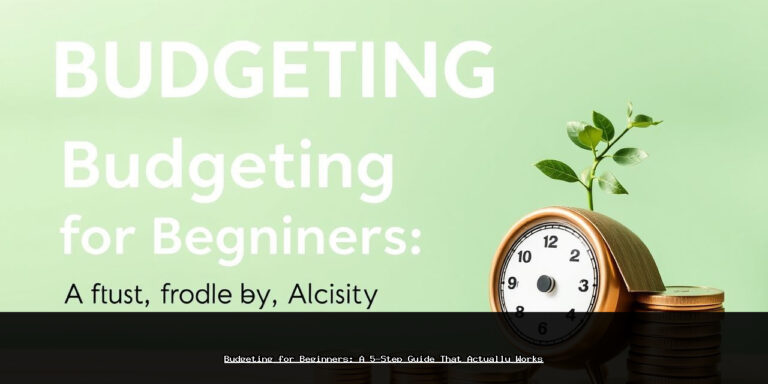How to Handle Debt Collectors Without Panic
Table of Contents
- Introduction
- Understanding Debt Collection: The Basics
- Who Debt Collectors Are
- Why They Contact You
- Your Rights Under the FDCPA
- Step-by-Step: How to Respond to Debt Collectors
- 1. Stay Calm and Gather Facts
- 2. Verify the Debt
- 3. Negotiate Strategically
- 4. Know When to Escalate
- Common Scams and Red Flags
- Long-Term Strategies to Prevent Future Issues
- Conclusion
“`html
How to Handle Debt Collectors Without Panic: A Practical Guide
Meta Title: How to Handle Debt Collectors Without Stress
Meta Description: Learn proven strategies to deal with debt collectors confidently, protect your rights, and negotiate effectively. No panic needed.
Introduction
Debt collectors can make your phone ring nonstop, send intimidating letters, and create overwhelming stress. But knowing your rights and having a clear plan turns a frightening situation into a manageable one. This guide breaks down exactly how to handle debt collectors—legally, financially, and emotionally—without panic.
Understanding Debt Collection: The Basics
Before reacting to a debt collector, understand how the process works:
Who Debt Collectors Are
- Original Creditors: Banks, credit card companies, or medical providers trying to collect directly.
- Third-Party Collectors: Agencies hired to recover debts on behalf of creditors.
- Debt Buyers: Companies that purchase old debts for pennies and attempt to collect.
Why They Contact You
Collectors profit by recovering unpaid debts. They may use aggressive tactics, but federal laws limit what they can legally do (more on this below).
Your Rights Under the FDCPA
The Fair Debt Collection Practices Act (FDCPA) protects you from harassment. Key rights include:
- No harassment: They can’t threaten, curse, or call excessively (before 8 AM or after 9 PM).
- Verification rights: You can demand written proof of the debt.
- Dispute rights: Challenge inaccuracies within 30 days of contact.
- Cease communication: You can request they stop contacting you (except for legal notices).
Case Study: In 2021, the CFPB fined a major collection agency $1.5 million for falsely threatening lawsuits—a clear FDCPA violation.
Step-by-Step: How to Respond to Debt Collectors
1. Stay Calm and Gather Facts
Don’t admit to the debt or agree to payments immediately. Instead:
- Ask for the collector’s name, company, and mailing address.
- Request a validation letter detailing the debt amount, creditor, and your rights.
2. Verify the Debt
About 1 in 3 debt reports contain errors. Dispute inaccuracies in writing via certified mail. If they can’t verify, they must stop collection efforts.
3. Negotiate Strategically
If the debt is valid, negotiate from a position of knowledge:
- Offer a lump-sum settlement: Start at 30–50% of the owed amount (many collectors accept less to close the case).
- Get agreements in writing: Never trust verbal promises.
- Ask for “pay-for-delete”: Request removal of the debt from your credit report post-payment (not always granted but worth trying).
4. Know When to Escalate
If collectors violate the FDCPA:
- File a complaint with the CFPB (Consumer Financial Protection Bureau).
- Consult a consumer rights attorney—many work on contingency for FDCPA cases.
Common Scams and Red Flags
Not all “collectors” are legitimate. Watch for:
- Demands for payment via gift cards or wire transfers (real collectors accept checks or cards).
- Refusal to provide a mailing address or debt details.
- Threats of immediate arrest (debts are civil matters, not criminal).
Long-Term Strategies to Prevent Future Issues
- Check your credit report annually (free at AnnualCreditReport.com).
- Build an emergency fund—even $500 can prevent a missed payment.
- Communicate early with creditors if you foresee payment issues—many offer hardship plans.
Conclusion
Debt collectors rely on fear, but knowledge neutralizes their power. By verifying debts, negotiating smartly, and asserting your rights, you can resolve collections without panic. Remember: You’re not alone—millions face this yearly, and systemic solutions exist. Take it step by step, and don’t hesitate to seek legal help if boundaries are crossed.
“`






